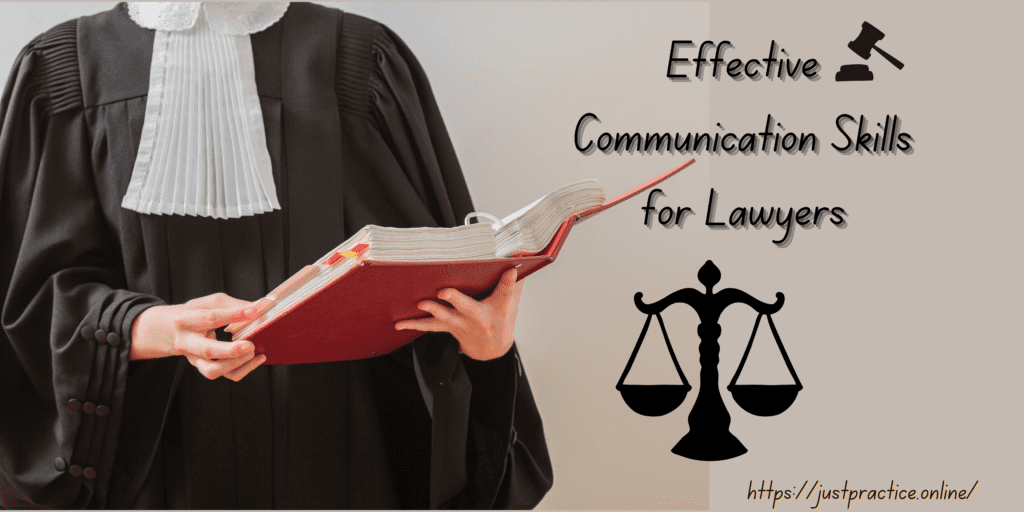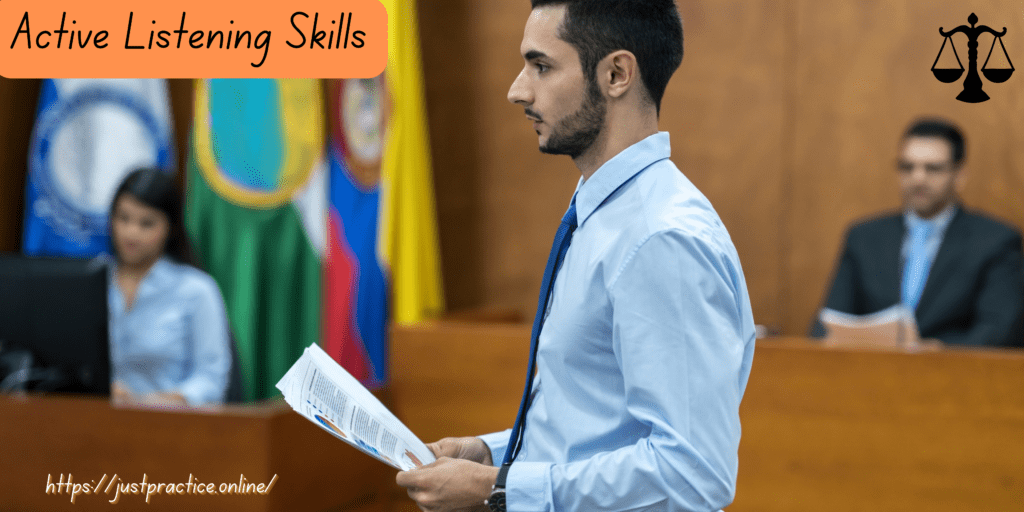
As a lawyer, effective communication skills are essential for success in the legal profession. Lawyers must communicate effectively with clients, other lawyers, judges, and juries. Communication skills include both verbal and written communication, as well as active listening and nonverbal communication. In this article, we will discuss the key communication skills that lawyers need and provide examples of how they can be applied in the legal context.
Verbal Communication Skills
Verbal communication skills are essential for lawyers, as they need to be able to communicate complex legal concepts to clients, judges, and juries. Lawyers must be able to speak clearly, confidently, and persuasively. Some key verbal communication skills include:
- Clarity: Lawyers must communicate complex legal concepts in a clear and concise manner. They must be able to explain legal concepts in simple terms that clients and juries can understand.
Example: A lawyer representing a client in a personal injury case must be able to explain the legal concept of negligence in a clear and concise manner to a jury.
- Confidence: Lawyers must speak with confidence and authority, especially in court. They must be able to present their arguments persuasively and convincingly.
Example: A lawyer representing a client in a criminal case must be able to speak with confidence and conviction when presenting their arguments to a judge and jury.
- Persuasion: Lawyers must be skilled in the art of persuasion. They must be able to convince judges and juries of their arguments and persuade clients to follow their legal advice.
Example: A lawyer representing a client in a divorce case must be able to persuade the judge that their client deserves a fair settlement.
Written Communication Skills

Written communication skills are equally important for lawyers. Lawyers must be able to write clearly, concisely, and persuasively. They must be able to draft legal documents that are free of errors and convey complex legal concepts accurately. Some key written communication skills include:
- Clarity: Lawyers must write clearly and concisely. They must be able to convey complex legal concepts in a manner that is easy to understand.
Example: A lawyer drafting a contract must be able to write in a clear and concise manner to ensure that the contract is understood by all parties involved.
- Accuracy: Lawyers must be accurate in their writing. They must ensure that all legal documents are free of errors and convey legal concepts accurately.
Example: A lawyer drafting a will must ensure that all the legal requirements are met and that the will accurately reflects the client’s wishes.
- Persuasion: Lawyers must be skilled in the art of persuasion in their writing. They must be able to persuade judges and juries of their arguments through their written submissions.
Example: A lawyer drafting a legal brief must be able to persuade the judge of the merits of their client’s case.
Active Listening Skills
Active listening skills are essential for lawyers, as they need to be able to listen carefully to their clients, judges, and other lawyers. Lawyers must be able to ask the right questions and clarify information to ensure that they fully understand their clients’ needs and the details of the case. Some key active listening skills include:
- Asking questions: Lawyers must ask the right questions to get a complete understanding of their clients’ needs and the details of the case.
Example: A lawyer meeting with a client for the first time must ask open-ended questions to gain a complete understanding of the client’s situation.
- Clarification: Lawyers must clarify information to ensure that they fully understand their clients’ needs and the details of the case.
Example: A lawyer must clarify information when reviewing a legal document to ensure that they understand its meaning.
- Empathy: Lawyers must show empathy when listening to their clients’ needs and concerns. They must be able to understand their clients’ perspectives and provide support
Example: A lawyer representing a client in a personal injury case must show empathy towards the client’s pain and suffering and provide emotional support.
Nonverbal Communication Skills
Nonverbal communication skills are also important for lawyers. Lawyers must be aware of their body language, facial expressions, and tone of voice. They must be able to convey confidence and authority through their nonverbal communication. Some key nonverbal communication skills include:
- Eye contact: Lawyers must maintain eye contact when speaking to clients, judges, and juries. This conveys confidence and authority.
Example: A lawyer making a closing argument in court must maintain eye contact with the judge and jury to convey confidence and authority.
- Posture: Lawyers must maintain good posture when speaking to clients, judges, and juries. This conveys confidence and authority.
Example: A lawyer making a presentation to a client must maintain good posture to convey confidence and authority.
- Tone of voice: Lawyers must be aware of their tone of voice when speaking to clients, judges, and juries. They must convey confidence and authority through their tone of voice.
Example: A lawyer cross-examining a witness must use a firm and authoritative tone of voice to convey confidence and authority.
In conclusion, effective communication skills are essential for lawyers. Lawyers must be skilled in verbal and written communication, active listening, and nonverbal communication. They must be able to communicate complex legal concepts in a clear and concise manner, persuade judges and juries, and provide emotional support to clients. By developing these communication skills, lawyers can become more effective advocates for their clients and achieve greater success in the legal profession.
Here are some resources that can help lawyers improve their communication skills:
- “Win Your Case: How to Present, Persuade, and Prevail–Every Place, Every Time” by Gerry Spence – This book provides practical tips and strategies for effective communication in the courtroom.
- “The Articulate Advocate: Persuasive Skills for Lawyers in Trials, Appeals, Arbitrations, and Motions” by Brian K. Johnson and Marsha Hunter – This book focuses on developing effective oral communication skills for lawyers.
- “Legal Writing in Plain English: A Text with Exercises” by Bryan A. Garner – This book provides practical tips for clear and concise legal writing.
- Toastmasters International – This organization provides opportunities for public speaking and leadership development through a network of clubs around the world.
- American Bar Association – The ABA offers training and resources on legal communication skills for its members.
- Lawline – This online platform offers continuing legal education courses on various topics, including legal communication skills.
- National Institute for Trial Advocacy – This organization offers training programs and resources for trial lawyers, including communication skills.
- Harvard Law School – Harvard Law School offers courses on legal writing, oral advocacy, and negotiation skills.
By taking advantage of these resources, lawyers can improve their communication skills and become more effective advocates for their clients.For more tips visit justpractice.online